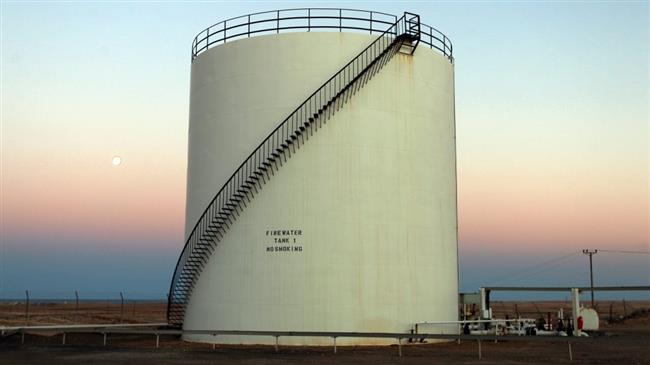Forces loyal to Haftar block oil exports from key Libyan ports
Forces loyal to Libyan military strongman Khalifa Haftar blocked oil exports from the war-ravaged country's main ports Saturday, raising the stakes on the eve of an international summit aimed at bringing peace to the North African nation.
The move to cripple the country's main source of income was a protest against Turkey's decision to send troops to shore up Haftar's rival, the head of Tripoli's UN-recognized government Fayez al-Sarraj.
It comes ahead of Sunday's conference in Berlin that will see the United Nations try to extract a pledge from world leaders to stop meddling in the Libyan conflict -- be it through supplying troops, weapons or financing.
"All foreign interference can provide some aspirin effect in the short term, but Libya needs all foreign interference to stop. That's one of the objectives of this conference," UN Libya envoy Ghassan Salame told AFP in an interview.
The presidents of Russia, Turkey and France as well as US Secretary of State Mike Pompeo are to join the talks, held under the auspices of the UN.
Haftar and Sarraj are also expected, German Foreign Minister Heiko Maas confirmed Saturday, ahead of the first gathering of such scale on the conflict since 2018.
After months of combat, which has killed more than 2,000 people, a ceasefire took effect on January 12 backed by both Ankara and Moscow, which is accused of supporting Haftar.
But Saturday's blockade raised fears over the conflict.
The disruption to oil exports is expected to more than halve the country's daily crude production, to 500,000 barrels from 1.3 million barrels, translating to losses of $55 million a day, warned Libya's National Oil Company.
"Our line at the UN is clear. Don't play with petrol because it's the livelihood of the Libyans," warned Salame just hours before the blockade.
Jalal Harchaoui, an expert at the Hague-based Institute Clingendael, said the petrol blockade was part of "the logic of blackmail".
"It can work, but there's also a risk that Washington will react badly" he said. Washington was deeply opposed to any move that could drive up crude prices, he added.
The oil-rich North African country has been torn by fighting between rival armed factions since a 2011 NATO-backed uprising killed dictator Moamer Kadhafi and toppled his regime.
More recently, Haftar's forces launched an assault in April on Sarraj's troops in Tripoli, according to AFP.
Although Sarraj's government is recognized by the UN, some powerful players have broken away to stand behind Haftar -- turning a domestic conflict into what is essentially a proxy war with international powers jostling to secure their own interests.
Alarm grew internationally when Ankara ordered in troops early January to help shore up Sarraj. Russia has denied accusations it provided weapons, financing and mercenaries to Haftar.
"We must end this vicious cycle of Libyans calling for the help of foreign powers. Their intervention deepens the divisions among the Libyans," said Salame.
The place of international players should be to "help Libyans develop themselves", he added.
The UN envoy said Sunday's meeting will also seek to "consolidate" the shaky ceasefire.
"Today we only have a truce. We want to transform it into a real ceasefire with monitoring, separation (of rival camps), repositioning of heavy weapons" outside urban zones, he said.
Although the UN has tried repeatedly to broker peace, talks have repeatedly collapsed.
On the eve of the Berlin talks, Turkish President Recep Tayyip Erdogan warned Europe to stand united behind Sarraj's government, as Tripoli's fall could leave "fertile ground" for extremist groups like Daesh or Al-Qaeda "to get back on their feet".
Turkish Foreign Minister Mevlut Cavusoglu also lashed out at Greece for hosting Haftar ahead of the international conference in Berlin, saying that the move by Athens would "sabotage" peace efforts.
"Inviting Haftar to Greece and highlighting the Greek national agenda sabotage the efforts to bring peace to Libya," Cavusoglu wrote on Twitter.
"We would like to remind our Greek friends that these futile efforts are in vain."
UNRWA unraveled amid Israel's allegations, reduced intl. support
Palestinian journalist, a Sobh Media Festival awardee, killed in Gaza hours before truce
Jan. 15: ‘Axis of Resistance’ operations against Israeli occupation
VIDEO | Fears, hope in Gaza amid intensified ceasefire efforts
VIDEO | Press TV's news headlines
Hamas: Ceasefire agreement result of steadfastness, resistance in Gaza over 15 months
Hamas thanks Iran, Resistance Front following achievement of ceasefire in Gaza
'Capitulation': Israeli officials and media concede Gaza defeat as truce unfolds












 This makes it easy to access the Press TV website
This makes it easy to access the Press TV website